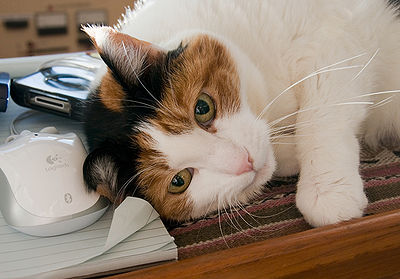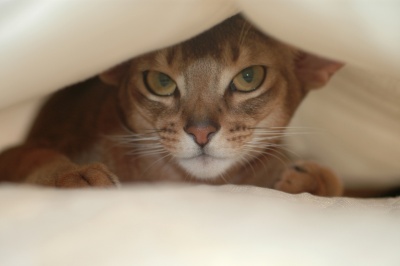
When our cats purr, we often find the sound soothing and accept it as a sign that our cats are content and love us. Here are some new insights into why cats purr.
Momma cats purr when giving birth to protect themselves as they are vulnerable during the birth process. Vocalizations other than the vibrations of purring can attract other predators.
A momma cat’s purr helps newborns who are born blind and deaf to feel the vibrations and find her. Kittens start purring at 2 days old and communicate with momma cat who purrs back. The vibrations can’t be felt by predators and help keep kittens safe.
Purring releases endorphins which reduce pain. Studies have shown that purring helps healing and pain and reduces stress.
Lions, tigers and leopards do not purr, but cheetahs and cougars are other cats that purr. Gorillas, rabbits, raccoons, ring-tailed lemurs, tapirs, elephants and hyenas are some other animals that purr although they produce the sound and vibrations differently than cats.
A purring cat attracts our attention and often the result is food or a treat for the cat.


